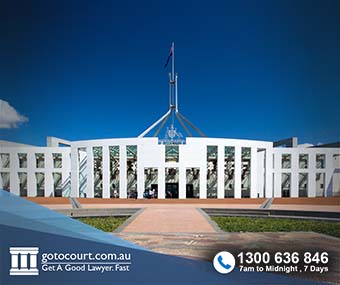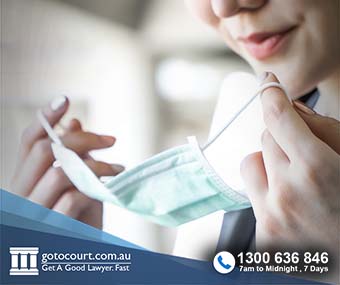Call our lawyers
now
or,
have our lawyers
call you
Is a Sperm Donor a Parent?
Updated on Jun 22, 2019 • 5 min read • 221 views • Copy Link
Is a Sperm Donor a Parent?
On 19 June 2019, the High Court handed down its decision in the matter of Masson v Parsons. The case concerned whether a man engaged as a sperm donor was a parent within the meaning of the Family Law Act. Mr Masson had donated sperm to a lesbian mother on the understanding that he would be involved in the life of the child conceived as a result. The mother subsequently formed a de facto relationship with another woman and the couple wanted to move to New Zealand, which Mr Masson opposed.
The High Court found that Mr Masson was a parent for the relevant purpose, and that this was a matter to be determined according to the “ordinary, contemporary understanding of a ‘parent’ and the relevant circumstances of the case at hand.” It overturned the Full Court of the Family Court’s finding that the man was not a parent by virtue of being a sperm donor.
The facts
Susan and Margaret Parsons married in New Zealand in 2015. One of the women gave birth to two daughters conceived by artificial insemination. The girls live with the mothers but have regular contact with Mr Masson, a long-term friend with whose sperm the older daughter was conceived. Masson is listed on both girls’ birth certificates although he is not the biological father of the younger girl. Both the girls call him ‘Daddy’ and he has been involved in their upbringing.
The Family Court decision
The Family Court made an order restraining the mothers from moving overseas, finding that at the time the older girl was conceived, the women were not in a de facto relationship and that the sperm donor was the girl’s second parent.
The matter subsequently became the subject of two appeals.
Appeal to the Full Court
The mothers appealed to the Full Court of the Family Court, arguing that Section 79 of the Judiciary Act 1903 required the court to apply the New South Wales Status of Children Act 1996, under which sperm donors are conclusively presumed not to be legal parents. Section 79 of the Judiciary Act states that state and territory laws are binding on courts exercising federal jurisdiction except as otherwise provided by the constitution or by Commonwealth laws. Section 14 of the Status of Children Act creates a series of presumptions relating to the parentage of children conceived through fertilisation procedures, including:
(2) If a woman (whether married or unmarried) becomes pregnant by means of a fertilisation procedure using any sperm obtained from a man who is not her husband, that man is presumed not to be the father of any child born as a result of the pregnancy.
This act states that this presumption is irrebuttable.
The Full Court of the Family Court upheld the mothers’ appeal, holding that the state act applied unless a commonwealth act provided otherwise and that Section 14 must be applied. The sperm donor was therefore presumed not to be the father and the court held that he should not be treated as a parent for the purposes of the Family Law Act. The court rejected the argument advanced by Mr Masson that a child can have more than two parents.
Appeal to the High Court
Mr Masson appealed to the High Court, arguing that federal family laws should apply and that the question of who is a parent should not be determined solely by who provided the genetic material and who was in a relationship with the birth mother, but also by reference to who had participated in the child’s parenting.
Both the Attorney-General of the Commonwealth and the Attorney-General of Victoria intervened in the High Court appeal, with the Commonwealth Attorney-General backing Masson’s position. The Victorian Attorney-General backed the mothers’ position, arguing that state laws preclude a sperm donor being recognised as a parent. It argued that this approach provides more certainty than the Commonwealth approach, which treats parentage as a question of fact to be determined on a case by case basis.
The appeal was hailed as an opportunity for the High Court to consider the difficult question of what it means to be a legal parent. The laws around parentage are unclear because of a divergence in legal opinion as to how federal family law interacts with state and territory laws. The Family Law Council has acknowledged that the present framework does not reflect the reality of parenting in Australia.
The High Court decision
The High Court rejected the findings of the Full Court of the Family Court, holding that the Family Law Act ‘leaves no room for the operation of contrary State or Territory provisions’ and that the Full Court ought not to have picked up the provisions of the NSW Status of Children Act.
Mr Masson had had an ongoing role in his biological daughter’s financial support, education, health and general welfare and had a close relationship with her. He had provided his genetic material to father a child who he expected to assist in parenting, which he had since done. Therefore he was a parent within the ordinary meaning of the word and for the purposes of the Family Law Act.
The court rejected the submission that the ordinary meaning of ‘parent’ categorically excludes sperm donors. The facts of this case were not that Mr Masson’s role was limited to providing his sperm for the child’s conception. Who is a parent must be determined by reference to all the relevant circumstances.
If you require legal advice or representation in a family law matter or in any other legal matter please contact Go To Court Lawyers.

Affordable Lawyers
Our Go To Court Lawyers will assist you in all areas of law. We specialise in providing legal advice urgently – at the time when you need it most. If you need a lawyer right now, today, we can help you – no matter where you are in Australia.How It Works











1. You speak directly to a lawyer
When you call the Go To Court Legal Hotline, you will be connected directly to a lawyer, every time.


2. Get your legal situation assessed
We determine the best way forward in your legal matter, free of charge. If you want to go ahead and book a face-to-face appointment, we will connect you with a specialist in your local area.


3. We arrange everything as needed
If you want to go ahead and book a fact-to-face appointment, we will connect you with a specialist in your local area no matter where you are and even at very short notice.












